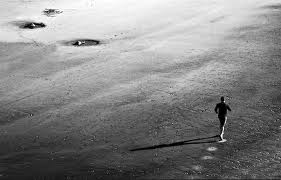 Today I want to talk about story pacing.
Today I want to talk about story pacing.
I’m currently reading one of those books that’s really gotten into my head and I’ve been thinking about why. The book is Princeps Fury, book 5 of the Jim Butcher’s Codex Alera epic fantasy series. I’m really enjoying the book and the series, although I need to finish it soon so I can get it out of my head and focus on my own writing.
Two things in particular have jumped out at me while reading this book. First, it is a big fat epic fantasy, and yet it is paced more like a military thriller: fast, unrelenting, with constant twists and escalations. Second, every scene drives the plot forward, escalating the conflict or twisting the plot. There’s no downtime, no reprieves.
For me it works, even though it’s hard to maintain such a pace for such a long book. For my wife, it doesn’t. She prefers stories where there are breaks in the tension, where the action comes more in cycles than in one long, continuous sprint toward the end. She needs the periodic emotional rest or she finds a story overwhelming.
Different readers have different preferences. As authors we need to discover what pacing our story requires. Then we need to deliver it. Some readers will like it. Some won’t. But if the story isn’t paced properly, no one will.
In a thriller or a fast-action story a hard-hitting, constantly escalating pace is required or there’s not enough emotional tension for the author to achieve the sought after experience for the readers. On the other hand, some stories have different objectives. Some epic fantasies explore the milieu (the environment, culture, history, and customs of the worlds they’ve created). That’s fine too. Many readers love this type of story as long as it doesn’t get too bogged down by all the side-tracks.
The pacing needs to be appropriate or the story dies. A common mistake that can derail the correct pacing is including the wrong scenes. Imagine a story like the movie “Die Hard” where, in the middle of the action, the hero John McLane decides to take a hot bath and drink some tea.
Wouldn’t work.
That example’s a bit extreme, but new authors often fall into the trap of including scenes just because they’re the next sequential step in the character’s journey, even if they’re just filler material between the scenes that really matter. Experienced authors have learned to recognize those filler scenes that do nothing in and of themselves to drive the plot forward in any meaningful way. They learn to cut those scenes and move on to the next important action.
For authors who do a lot of exploratory writing to “find’ the story, this can be a greater challenge because the very nature of that exploratory writing will result in scenes that are useful to the author but not to the finished work. In subsequent drafts as the author is paring the story down to its core plot line, those scenes must be removed or they will drag a story down and ruin it.
I’ve learned this the hard way. In the early drafts of one novel I wrote I included several entire chapters that, although interesting and well written, did next to nothing to drive the plot forward. It was hard to recognize that they had to go because in a slightly different story they would have been perfectly appropriate.
Just not in the story they happened to be in.
I had to learn to ask the question: “If I remove this entire scene, will the reader even notice?” The answer was “No”. I cut the scenes and no one blinked an eye.
On the other hand, in the same novel, I got a little carried away with trimming the fat and cut an entire POV and all of its related scenes. Beta readers didn’t know what was missing but they sensed that something was lacking in the story. I put the scenes back and readers confirmed it filled the gap.
It can be a tricky process, but it is vital. We as authors need to make sure we understand what emotional journey our readers will be taking as they follow our characters through the torturous adventures we throw them into. Extraneous scenes need to go. Scenes that do not deliver the correct tension, pacing, or emotional beat have to go or have to be corrected.
What techniques have you developed for identifying scenes to chop?
